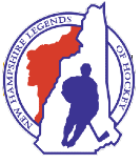Downing Brown
Induction Year: 2019
Birthday: June 27, 1887
Died: April 1, 1954
City/Town: Portland, ME
Downing Potter Brown
Downing Potter “D.P.” Brown was the fourth of five sons of the founder of the Brown Company, which ran the largest paper mill in the country in the early part of the 20th century in Berlin. He and his family’s company was one of the first major corporations in the country to sponsor and build the game of hockey on such a large scale. Brown was responsible for the founding of the Berlin Athletic Association hockey team in 1921, which was followed by the creation of a mill league, city teams and a team at Berlin High School. The success of those endeavors led to the inception of the Berlin Maroons, who went on to become one of the premier amateur teams in the country.
Brown himself was an excellent athlete, playing football and hockey — where he was the team captain — at Williams College, and graduating in 1908. After graduation, he began work at his family company in the forestry division, then went to manage operations in the company mill in LaTuque, Quebec.
After a stint in the United Kingdom during World War I, where he advised the British on wood and lumber mill operations, Brown returned to his hometown and served in several capacities within the Brown Company until his death in 1954.
His love of the sport of hockey influenced him to develop the game on an “industrial level.” In 1920, the Cascade Athletic Association was formed, with teams in hockey and baseball, and others would follow. He was the head coach when Berlin High School played its first year of hockey in 1921-22. In 1923, Brown was elected president of the Berlin Hockey Association, which he and his company formed, and whose team played opponents in New England and Canada. At the same time, the company’s sponsoring of mill teams in LaTuque, more than 300 miles away, led to growth in the sport in that area.
Although 1928 was the last year for the Berlin Hockey Association team, which had been renamed the B.A.A. Mountaineers, Brown and his company continued to finance mill teams in Berlin and brought amateur/semipro hockey back to the area in 1928, in the form of the Berlin Hockey Club. Nine years later, that team would be known as the Berlin Maroons. The Maroons, one of the greatest amateur teams in New England history, competed until 1972. The team would skate to numerous New England titles and three national championships.
